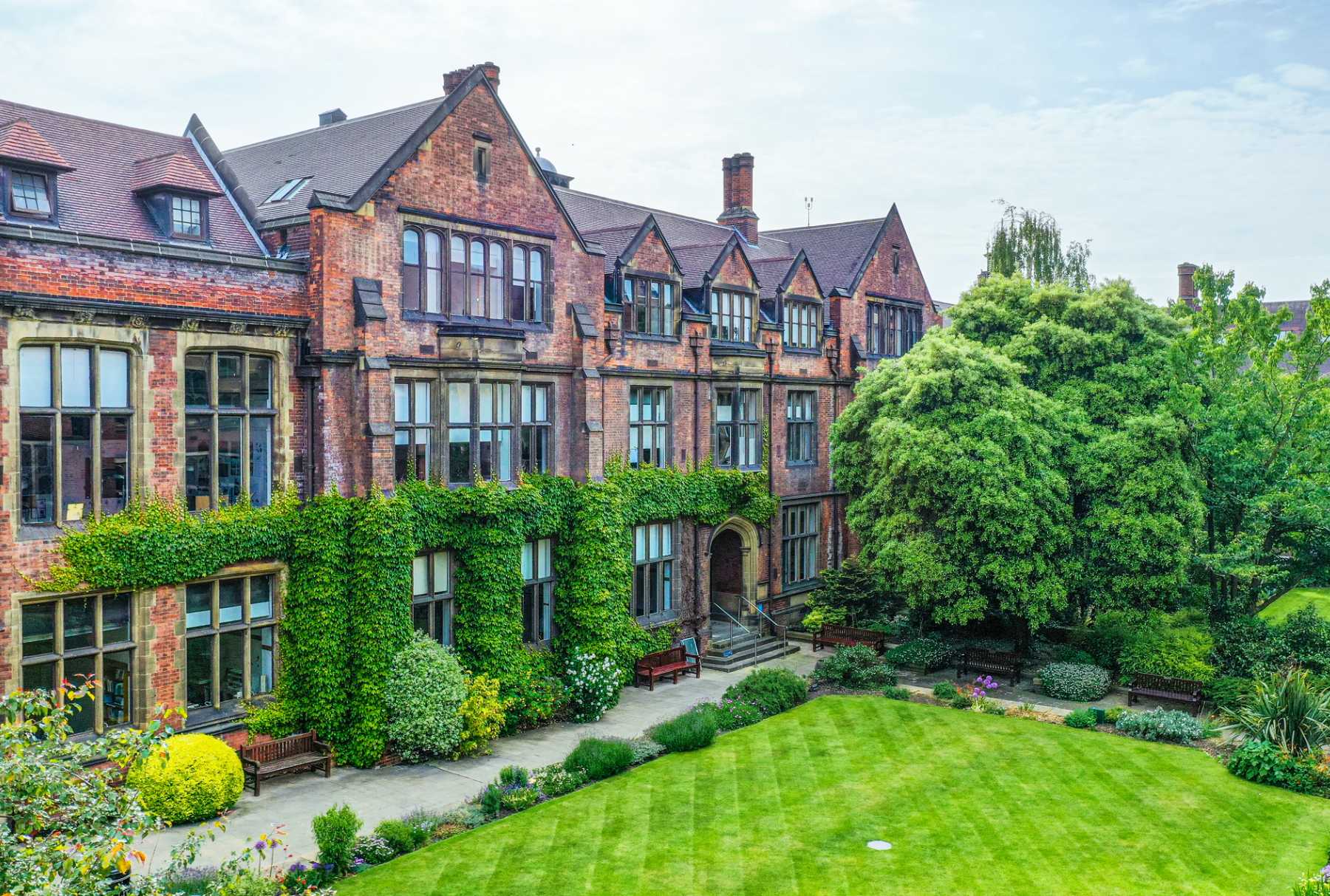Energy
Energy use is one of our most significant environmental impacts.
Sustainable Power
Nearly 50% of Newcastle University’s total carbon footprint is emitted through the supply of heating, cooling and power to our buildings. The University is paying over £10 million per year in utility bills alone.
Effective energy management and investing in energy efficiency, conservation, generation, and awareness measures are all crucial for achieving our goal of net zero by 2030. Each of us has an important role to play in making the most of our campus's potential to operate sustainably.
Read on for advice on saving energy in a variety of campus spaces and email the Sustainability Team if you find areas where you believe energy is being wasted.
Sorry, you need JavaScript to view this video
Energy saving actions
Effective energy management is an important step toward achieving the goal of net zero by 2030. The utilisation of energy saving practices within offices and academic teaching and learning rooms plays a key role towards embedding them within the University.
- Turn off your PC and monitors at the end of the day. A standard PC with one monitor uses around 140 watts of energy per hour when switched on, 42 watts when in standby, and only 5 watts when shut down.
- For areas without automatic control, turning off lights when they are not required, making good use of natural light, and ensuring that broken lighting is reported promptly are all vitally important.
- It may be useful to discuss who is usually last in the office and establish responsibility for turning off lights at the end of the day. Additionally, labelling banks of light switches can reduce energy use by assisting colleagues in only using the lights they need.
- Dress for thermal comfort:
- As we all feel cold to different degrees, a great way to maximise personal comfort is to wear the most appropriate clothing for you.
- Familiarise yourself with your local heating controls
- Some office radiators have thermostatic radiator valves (TRVs) which you can alter.
- Do not use portable electric heaters
- Electric heaters are not only expensive to run but are also responsible for greater CO2 emissions.
- Ensure that heating and cooling systems are not running at the same time and close doors and windows when the heating or cooling system is on
- Colleagues can set up a team on Green Impact, the new colleague engagement programme.
- Report the following issues to Estates and Facilities on ext. 87171 or ess-helpdesk@newcastle.ac.uk
- If your work area is too cold (typically lower than 19°C)
- If you think there may be a fault with the heating or cooling systems in your area
- Doors and windows that do not seal correctly when closed
Did you know?
Turning off your PC at the end of the day will save 88% of its power consumption as compared to leaving it in standby overnight!
Projects that require cooling
The University aims to limit the use of air conditioning (AC) due to the high costs and negative environmental impact. The installation of new AC systems is subject to an assessment and approval process.
- Please fill out the AC and Cooling Case Assessment form (Word: 31KB) if you have a project that may require cooling, and return the completed form to sustainable.campus@ncl.ac.uk.
- We will not normally accept requests for comfort cooling, Estates & Facilities will work with units to assess alternative approaches to achieving thermal comfort for occupants.
Heating and cooling
Managing conditions inside our buildings is important to campus users, the maintenance of our estate, and the environment. The University spends in excess of £5 million on heating and cooling buildings annually.
- Our buildings are equipped with sensors and automatic heating and cooling systems to keep conditions at the required comfort levels.
- Comfort cooling should not be set to come on below 25°C
- We are investing in a number of energy saving projects, including a programme of control upgrades that will make the existing systems more efficient.
More detail can be found in the Heating and Cooling Policy for Non-Residential Buildings (PDF: 229KB) for academic, research and office buildings. For student accommodation, see the link to the Residences Heating Policy under Policy Information.
Energy performance of campus buildings
Display Energy Certificates (DECs) are designed to show the energy performance of public buildings. They use a scale that runs from 'A' to 'G' - 'A' being the most efficient and 'G' being the least.
You can check the DECs and related recommendation reports for University campus buildings on the Government's website. Please note, this website is still in Beta form and shows expired as well as valid certificates for some buildings.
Laboratory energy saving actions
Our technical spaces, including natural and medical science laboratories and engineering workshops, utilise high energy specialist equipment, such as fume cupboards, drying cabinets, and freezers.
If we split Newcastle University’s buildings into technical, and non-technical, then the technical spaces account for nearly 60% of Scope 1 and 2 CO2 emissions, but less than 45% of our total estate area.
There are many ways to decrease energy usage in laboratories, and guidance for colleagues can be found below:
- An excellent course of action to embed lasting change would be to work through the criteria of the Laboratory Efficiency Assessment Framework (LEAF).
- Turn off equipment when it is not being used
- If your lab has a fume cupboard, encourage users to close the sash when possible.
